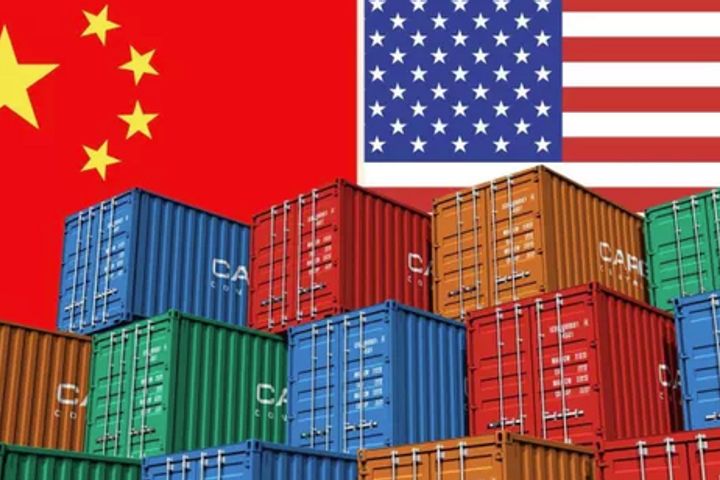 'Trade Wars Are for Losers,' Says China's State-Run Xinhua News Agency
'Trade Wars Are for Losers,' Says China's State-Run Xinhua News Agency(Yicai Global) March 23 -- The Trump administration adopts outdated protectionist measures based on wrong assumptions, and such old practices will not work in the international community, China's state-owned Xinhua News Agency said in a long commentary today in response to U.S. President's decision to levy sweeping tariffs on Chinese imports and limit Chinese companies' investment in and mergers and acquisitions of the U.S. firms.
Firstly, the protectionist policies recently adopted by the U.S. bear the marked characteristics of the old era and seem out of place in the new world, Xinhua said. Some westerners denounce them as "bullying" policies.
Trump signed a presidential memorandum yesterday to impose tariffs on Chinese imports and limit Chinese investment in the U.S. based on the results of the Section 301 investigation.
Section 301 investigation is a unilateralist legal tool created in the cold war era, Xinhua added. It allows the U.S. to simultaneously act as a "policeman," "prosecutor," "jury," "judge," and "law enforcement officer," and it is aimed at letting the U.S. leverage its superior trade status to force its trade partners to sacrifice their interests, Xinhua commented.
Such unilateralist trade tools have basically been abandoned after the establishment of the World Trade Organization, WTO, in 1995. To cut trade deficit, the Trump administration forcibly revives the "zombie" trade tools to help implement its "bullying" policies, which is set to hurt international trade, China's state-run news agency said.
It is a blatant defiance and provocation to the rules-based international multilateral trading system as well as a serious threat to global economic recovery and has been widely opposed by major economies including traditional U.S. allies.
Secondly, we should not look at the U.S. trade deficits with China and their bilateral trade and economic relations from a static perspective or on a standalone basis, Xinhua said. As economic globalization deepens, the U.S.-China trade has become part of a global multilateral trading system involving various inter-dependent and closely linked parties.
Take an USD1,000 iPhone X that is assembled with globally imported parts in China before being exported to the U.S., for example, Xinhua suggested. China shall not be held accountable for the USD1,000 trade deficit with China just because it has earned dozens of dollars in assembly fees.
The Trump administration shall see that China's trade surplus with downstream consumers in the U.S. corresponds to China's imports from upstream countries along the supply chains, including goods and services imported from the U.S. firms. As the U.S. business people pointed out, imposing tariffs on Chinese imports will hurt American businesses that sell components to China. No wonder Paul Krugman, winner of the Nobel in economics and an expert in international trade theories, called US trade deficit with China as an "optical illusion," Xinhua reminded.
Thirdly, "bullying" trade policies and unilateral measures aimed at reducing the U.S.'s trade deficit that have accumulated over the years will not work. Economists have repeatedly noted that the U.S. trade deficit results from the country's internal structural problems such as excessive consumption and low savings rate.
The U.S.' trade deficit has kept increasing since the 1980s. The U.S. has taken various trade protectionist measures to reverse the trend since the Reagan administration but failed. In fact, the U.S.'s trade deficit has hit a nine-year high since the Trump administration came to power more than a year ago. It is unreasonable and will never work to ask others to take medicines when you yourself are sick, Xinhua said.
Given that the US and China are the world's largest and second largest economies and that the two countries are highly dependent on each other in terms of trade and economy, the U.S. cannot remain unscathed after taking trade protectionism measures against China. "Trade wars are for losers," said Xinhua.
No coercion would lead to deal-making. The bilateral trade has grown 232 times to USD580 billion in the past 40 years, with bilateral investments exceeding USD230 billion. The key to solving the problems in bilateral trade relations lies in expanding market access for American firms in the Chinese market and for Chinese firms in the U.S. market, exploring new paths in an equal manner, addressing imbalances through collaboration, and achieving harmonious coexistence by promoting win-win cooperation.
China never deliberately pursues a trade surplus, but China is prepared for the worst. "China never wants to fight a trade war with anyone. But if we are forced to, we will neither be afraid nor hide from it," said Hua Chunying, spokesperson for China's Foreign Ministry.